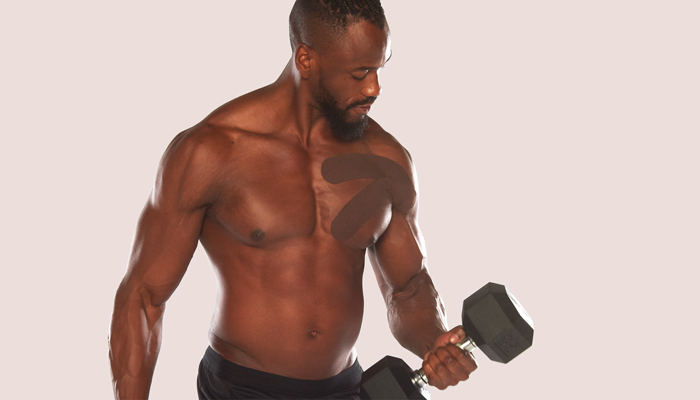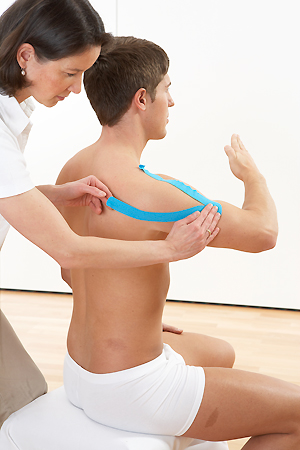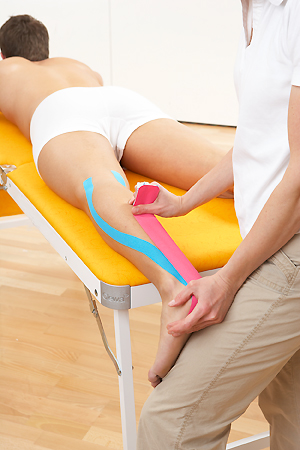
K-Taping Sport
The K-Taping Sport Course is primarily aimed to therapists and physicians who are active in competitive sports. The K-Taping Sport Course introduces many basic techniques and related combination techniques to indications that are often used in the field of competitive sports. In addition, the basic techniques for lymphatic techniques and the application of Crosstape are presented and learned in practical exercises. The course will focus more on the requirements of the participants.
By participating the K-Taping Sport course, you will get to know how to use the K-Taping Therapy for many diseases with following techniques:
- Muscle systems
- Ligament systems
- Correction systems
- Fascia systems
- Lymphatic systems
These techniques can also be applied for prevention.
K-Taping courses have a high practical share in which the participants practice the techniques at each other. The learning control takes place during the practical exercises by our experienced instructors. This will enable you to include the K-Taping Therapy in your treatment right after the course. The high-quality and detailed coloured course book contains all presented techniques and indications and serves you after the course as extensive practical handbook.
Requirement
The course requires anatomical and therapeutic knowledge. Participants should therefore have a therapeutic or medical education. Students undergoing training in therapeutic and medical careers may also attend the course.
The course fee includes the extensive colour script as well as the K-Tape and Crosstape for the practical exercises.
Recommendation
It is recommended to wear comfortable clothes for dressing and undressing during the practical exercises as well as to bring a towel to the underlay.
Course content
Part 1Theory
Basics and effects of K-Taping therapy
The basic techniques
Application of basic techniques, indication related combination rules, CROSSTAPE, lymphatic techniques
Part 2muscle techniques
General basics of muscular techniques
Muscle techniques
Upper extremities:
M. trapezius, M. deltoideus, M. biceps brachii, M. triceps brachii, M. supraspinatus
Torso:
M. pectoralis minor, M. pectoralis major, M. transversus abdominis, M. iliacus
Lower extremities:
M. adductor longus, M. rectus femoris, M. glutaues maximus, Erector spinae
Working with muscle chains
Part 3Ligament techniques
General basics of a ligament attachment
Ligament techniques
Collateral ligaments knee, patellar tendon, Achilles tendon, spacetape pain point, spacetape trigger point
Part 4Correction techniques
General principles of a functional correction
Functional correction
Patellar correction, combinations
Part 5Fascia correction
General principles of a fascia correction
Fascia correction
Tractus Iliotibialis, epicondylitis, biceps tendon irritation, hamstring, anterior shoulder instability
Part 6Indication techniques
Indication techniques
Frozen shoulder, respiratory support, lumbar spine syndrome, stabilization of the thumb, basal joint, finger contusion, wrist stabilization, hip problems, osteoarthritis of the knee / meniscus lesions, achillodynia, ankle distorsion, rib fracture / bruise, scar tissue.
Practical case studies according to the needs of the participants
Part 7LYMPHIC techniques
General basics of lymphatic techniques
Lymphatic techniques
Joint drainage shoulder, knee joint drainage, decongestion thigh, fibrosis / hematoma.
Part 8CROSSTAPING
Basics of CROSSTAPING
Application of CROSSTAPING using various examples
Part 9Course evaluation
Course evaluation
15
9:00 AM – 6:00 PM | 9:00 AM – 1:15 PM
Certificate
220


